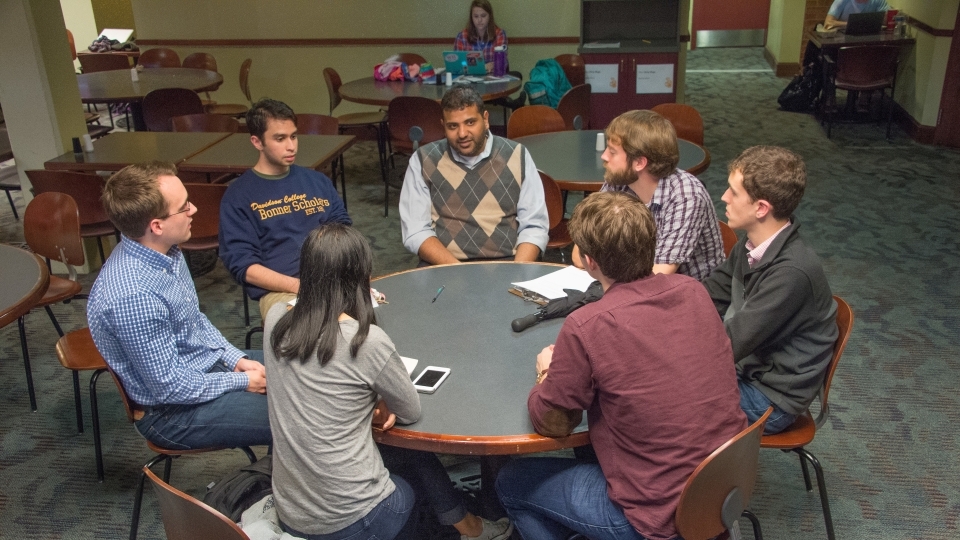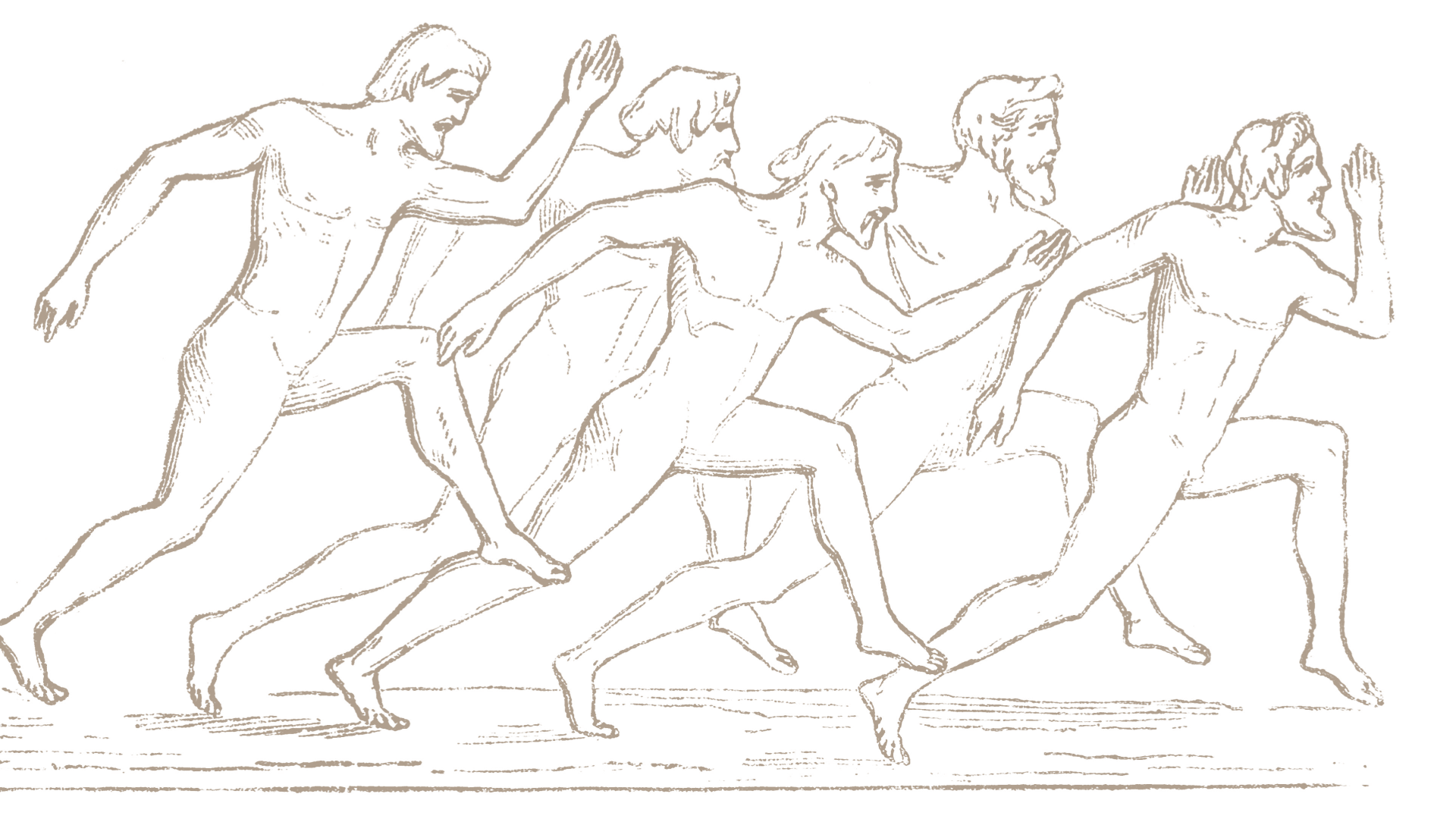Davidson Econ Professors: Tariffs Hurt U.S. Economy and Threaten Global Stability
May 23, 2019
- Author
- Jay Pfeifer

Prof. Shyam Gouri Suresh (center)
With the United States and China locked in a tit-for-tat trade war, two Davidson economics professors and experts in international trade illuminated the cost and complexity of this conflict between the world’s two largest economies.
James B. Duke Professor Emeritus of International Studies and Professor Emeritus of Economics Dennis Appleyard literally wrote the book on international trade. He and Alfred Field Jr., a professor of economics emeritus at the University of North Carolina, have co-authored nine editions of the textbook “International Economics.”
Associate Professor of Economics Shyam Gouri Suresh teaches “International Trade” at Davidson in addition to conducting research on international and computational economics.
Who pays for the tariffs levied by the United States on Chinese products?
Appleyard: There is no question that some of the increased tariff duties will be passed on to U.S. consumers. The extent to which the price of any particular good to a U.S. consumer will rise will vary by the demand/supply conditions associated with the particular product.
Gouri Suresh: When the U.S imposes tariffs, it creates a wedge between world prices for Chinese goods and domestic U.S. prices for those goods. It’s theoretically possible that tariffs could mostly lower world prices for Chinese goods while barely raising U.S. prices for Chinese goods in which case the burden of tariffs falls almost solely on Chinese firms. However, recent research -- like this report (PDF) from The Centre For Economic Policy Research -- shows that U.S. prices rise by nearly the full extent of the tariff and therefore the U.S. consumer bears almost the entire burden.
Will we see global repercussions for the tariffs imposed by the United States and China?
Gouri Suresh: U.S. tariffs and Chinese retaliatory tariffs will have a significant impact on production and consumption decisions in both countries. U.S. tariffs hurt U.S. consumers and U.S. firms in sectors that use imports from China. The tariffs also hurt Chinese firms but could indirectly help the exporting sector in other countries.
The impact of these tariffs will vary by region, industry and economic class. However, the retaliatory tariffs by China have already hurt U.S. producers, particularly farmers. A recent report by the Minneapolis Fed suggests that Chapter 12 bankruptcies -- used only by farmers or fishermen -- are on the rise, while a report by Trade Partnership Worldwide predicts the net employment impact of the tariffs and retaliatory tariffs would be about two million jobs lost in the United States.
However, I fear the short-term costs of the trade war may be dwarfed by the long-term costs to a global economy where trade restrictions could become the norm. It’s helpful to note here that though they appear large in magnitude and are certainly devastating to those who experience them, from a macroeconomic perspective these short-term costs only amount to a small percentage of overall U.S. GDP. In my view, trade has worked as an engine for growth (though the growth has been extremely uneven) and even peace.
I worry that these tariffs could exacerbate political crises and lead to destabilization in the region and around the world.
Tariffs are nothing new. Is there a historical example we can learn from?
Appleyard: The episode that comes to mind is of course the period of the Great Depression. The U.S. Smoot-Hawley tariffs of 1930, which averaged 50 percent (the U.S. currently seems to be focusing on 25 percent tariffs), and the retaliatory tariffs abroad clearly contributed to worsening the Depression. World trade in total contracted, of course, and one estimate that I’ve seen is that about half of the large decline in world trade was due to the various tariffs and about half was due to contraction in incomes (which reduced spending in general and also on imports).
Does the United States have a legitimate grievance against Chinese trade practices?
Gouri Suresh: There have been concerns about China acquiring intellectual property by coercion and even deceit from U.S. firms. While this kind of theft is as old as time and widespread to different extents throughout the world, one cannot justify illicit acquisitions of IP by Chinese firms. Other actions by the Chinese government (both domestic and international) have also been problematic for political and economic reasons -- for instance there was a fiasco concerning a port in Sri Lanka (Hambantota) that China took over because Sri Lanka was unable to repay some of its debt to China.
However, the appropriate approach for these kinds of problems, in my view, would be to get worldwide support for political and economic sanctions against China specifically tied to these problematic actions.
The current approach of unilaterally imposing tariffs while simultaneously alienating the global community (for instance, through other tariffs such as the proposed tariff on Canadian steel) does not serve to meet these objectives and ultimately hurts U.S. consumers and producers.



